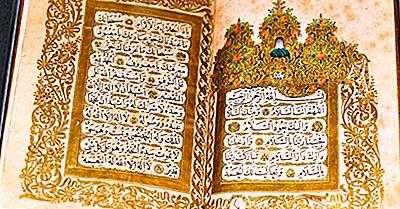The term Islamic economics is used to refer to Islamic business jurisprudence. It is an economic ideology based mainly on the teachings of Islam and lies between the system of Marxism and that of capitalism. Islamic law, sharia, stipulates what is encouraged, prohibited or desired in economic activity. Many researchers have proposed different definitions for the term, but no single definition has been accepted universally. In this article, we discuss the applications and evolution of the Islamic economy.
History and principles of Islamic economics
The branch of Islamic economics emanated from a number of traditional Islamic concepts. One of the key concepts included Zakat, which referred to the taxation of certain goods by charities. The tax revenue is allocated to eight expenses expressly mentioned in the Koran. Other concepts include Taa’won (mutual competition) and the doctrine of fairness in all transactions. Qamar (gambling), Riba (interest) and Gharar (high degree of uncertainty) are strongly discouraged in Islam. The economy of Islam is as old as the religion of Islam but was officially recognized in the 20 thCentury. The Sunni branch of Islam sees no need to study the economy because its predecessors, including the Prophet Muhammad, apparently never interested it. However, Shia Muslims believed that it was important to incorporate the subject into their religion. Certain Shiite thinkers have brought in their books very important answers to contemporary economic problems. They include Mahmud Taleqani (author of Our Economy ), Abolhassan Banisadir (author of The Economy of Divine Harmony ), and Habibullah Perman. These authors have portrayed Islam as a religion that values social justice and the equitable distribution of resources.
Relevant applications
The field of Islamic economics is widely used today by members of the Muslim community to make financial decisions. For example, Sharia-compliant banks charge no interest on loans or money deposited into their accounts. The Koran declares that all property belongs to God and that God entrusts to it only the care of the property. According to scholars of Islam, property can be divided into three forms, namely being either private property, public property or state property. He also campaigns for market regulation to protect consumers and solve health problems. Some countries, such as Pakistan, which use sharia law to govern have attempted to have a controlled market economy. Islamic banking institutions were seen as the only viable and workable application of the Islamic economy. These banks charge no interest on loans and deposits. According to Islam, interest is Haram (unauthorized).
Evolution over time
This field has evolved over time to become a means of financial decision-making in the daily life of members of the Muslim community. It has also become one of the most sought after academic fields. As in 2008, there were over a thousand unique titles on the subject and over 200 had obtained a doctorate in philosophy of Islamic economics. The people of Moe are very interested in learning about it.
Praise and criticism
Economists have argued that most concepts of Islamic economics are impractical, and many have even argued that they are motivated by religious fanaticism rather than trying to solve existing problems. Others have criticized the idea of market controls, arguing that it is more effective to let market forces dictate the market trend and protect consumers. Supporters of the idea, meanwhile, argued that it had led to a more equitable society that protects the less fortunate. However, the principles of the economic model are totally impractical and are only wishful thinking.
